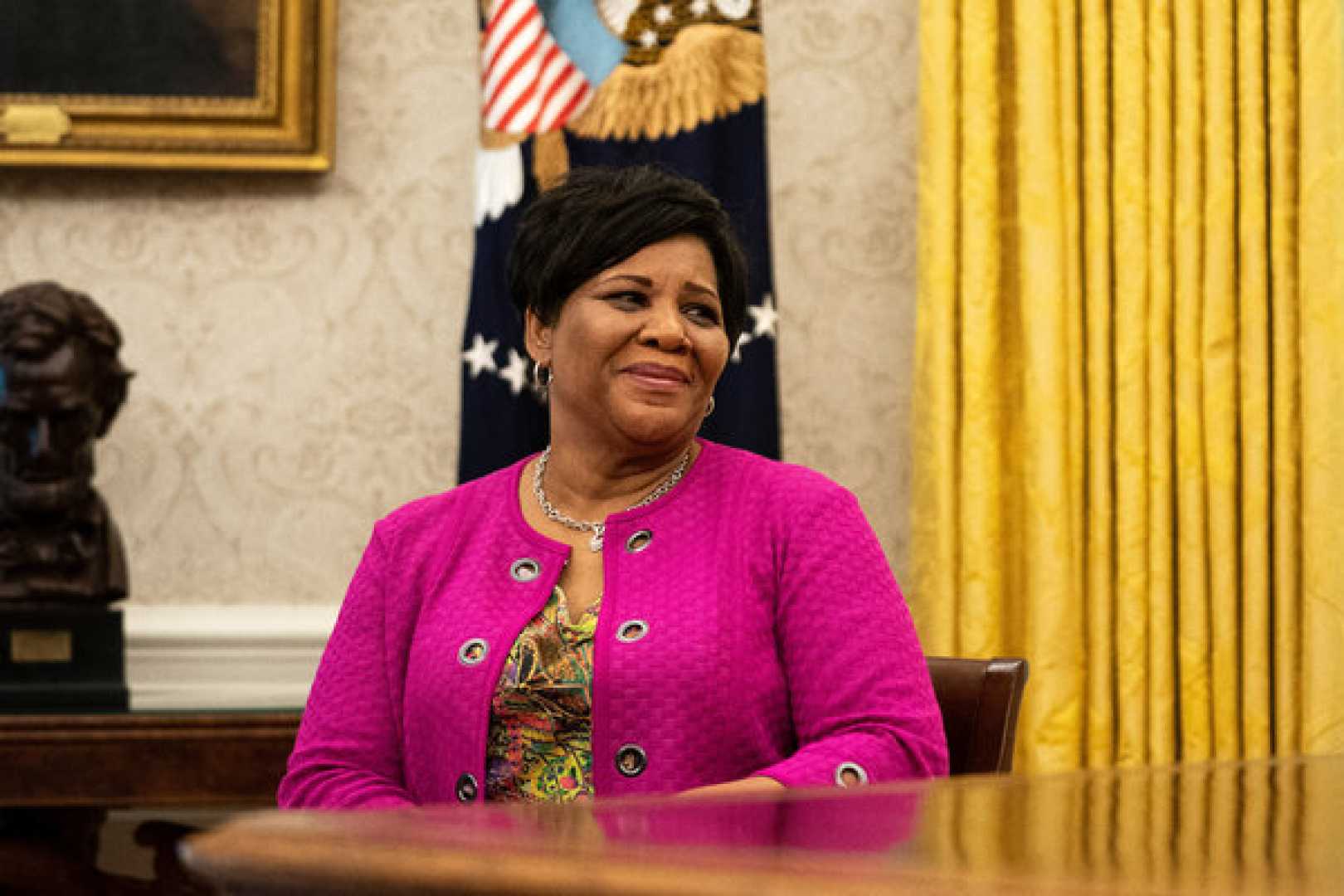Politics
Trump Appoints Alice Johnson as Pardon Czar Amid Controversy

WASHINGTON, D.C. — President Donald Trump announced on Thursday that Alice Johnson, whom he pardoned for a nonviolent drug offense, will serve as his new “pardon czar.” Johnson’s role will involve searching the criminal justice system for individuals who may have been wrongfully convicted or are victims of injustice.
During a Black History Month event at the White House, Trump praised Johnson, stating, “She’s going to be my pardon czar. You’re going to find people just like you that this should not have happened.” Johnson was initially serving a life sentence before Trump’s clemency action in 2020, a decision that attracted significant media attention and was heavily supported by activism from celebrities, including Kim Kardashian.
While many laud Johnson’s release, critics highlight the inconsistencies in Trump’s approach to drug policies and pardons. Trump has made controversial remarks favoring severe penalties for drug dealers and has promoted aggressive policing tactics. This has raised questions about his sincerity towards reforming the justice system.
Johnson, whose life sentence for a drug conviction in Tennessee was commuted by Trump in 2018, expressed her commitment to the new role. “I’m honored to help find individuals who deserve a second chance,” she said. The announcement has been met with skepticism, as it remains unclear how much authority Johnson will have in influencing pardon decisions, which ultimately reside with the President.
In addition to the pardon announcement, Trump has recently terminated the National Law Enforcement Accountability Database initiated under the Biden administration. The database was intended to track misconduct related to federal law enforcement personnel, but Trump described it as full of “woke, anti-police concepts” and rescinded it, claiming that accountability should be balanced with support for law enforcement.
Critics of the administration’s decision argue that removing such transparency hampers efforts to ensure that law enforcement candidates are adequately vetted. Lauren Bonds, executive director of the National Police Accountability Project, said, “It’s very disappointing that this powerful tool is no longer available for tracking law enforcement credibility. This action endangers the very communities these officers serve.”
As the criminal justice reform debate continues, Trump’s position of pardoning controversial figures while dismantling accountability measures creates a complex narrative that resonates in the political landscape leading into the upcoming elections.












